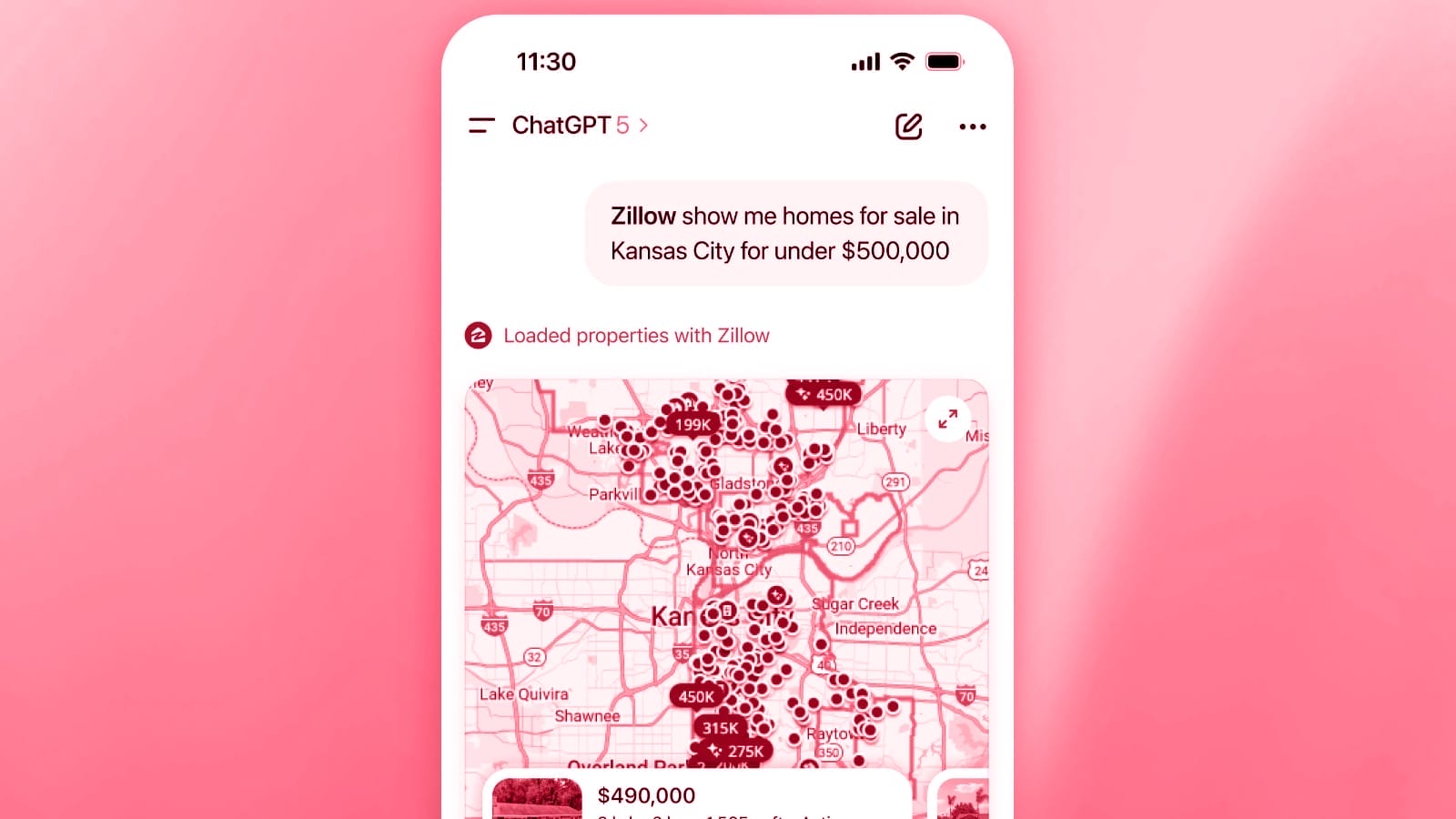OpenAI has launched a new feature that allows third-party applications to run directly within the ChatGPT interface. This development enables users to interact with services like Zillow, Canva, and Spotify using natural language prompts, combining the chatbot’s conversational abilities with the specific functions of external tools. The company also released a new Software Development Kit (SDK) for developers to begin building these integrations.
The feature, called “Apps in ChatGPT,” is designed to work contextually within a conversation. According to OpenAI, ChatGPT can suggest a relevant app during a chat—for example, offering the Zillow app when a user discusses buying a home. Alternatively, users can invoke an app directly by name, such as by prompting, “Canva, create a poster for a dog-walking business.” In demonstrations, these apps presented interactive interfaces, like a map with property listings or a gallery of design templates, directly inside the chat window.
According to the announcement, the first time a user accesses an app, ChatGPT will request permission to connect, outlining what data may be shared with the third-party service.
Available apps and access
The feature is rolling out to logged-in users on Free, Go, Plus, and Pro plans in most regions, with the exception of the European Union for the initial launch. The first set of available apps includes:
- Booking.com
- Canva
- Coursera
- Expedia
- Figma
- Spotify
- Zillow
OpenAI stated that more partner apps, including OpenTable and Uber, are planned for release later in the year.
A new toolkit for developers
For developers, OpenAI has released a preview of the new Apps SDK. This toolkit is built on the Model Context Protocol (MCP), an open standard that facilitates communication between AI models and external tools. The SDK allows developers to design both the logic and the user interface for their apps, which can appear in different formats, such as small inline cards, full-screen views for immersive tasks, or as a picture-in-picture element for watching videos.
Safety and privacy guidelines
OpenAI published guidelines that developers must follow for their apps to be listed. The company states that all apps must comply with its usage policies, be appropriate for a general audience, and include a clear privacy policy. Developers are required to collect only necessary data and be transparent about permissions. Apps that violate these policies may be removed.
This move signals a significant expansion of ChatGPT’s capabilities, transforming it from a standalone chatbot into a more integrated platform that can execute complex, real-world tasks. OpenAI has also announced that it will provide details on how developers can monetize their apps at a later date.
Video
Sources: OpenAI, The Verge, VentureBeat
